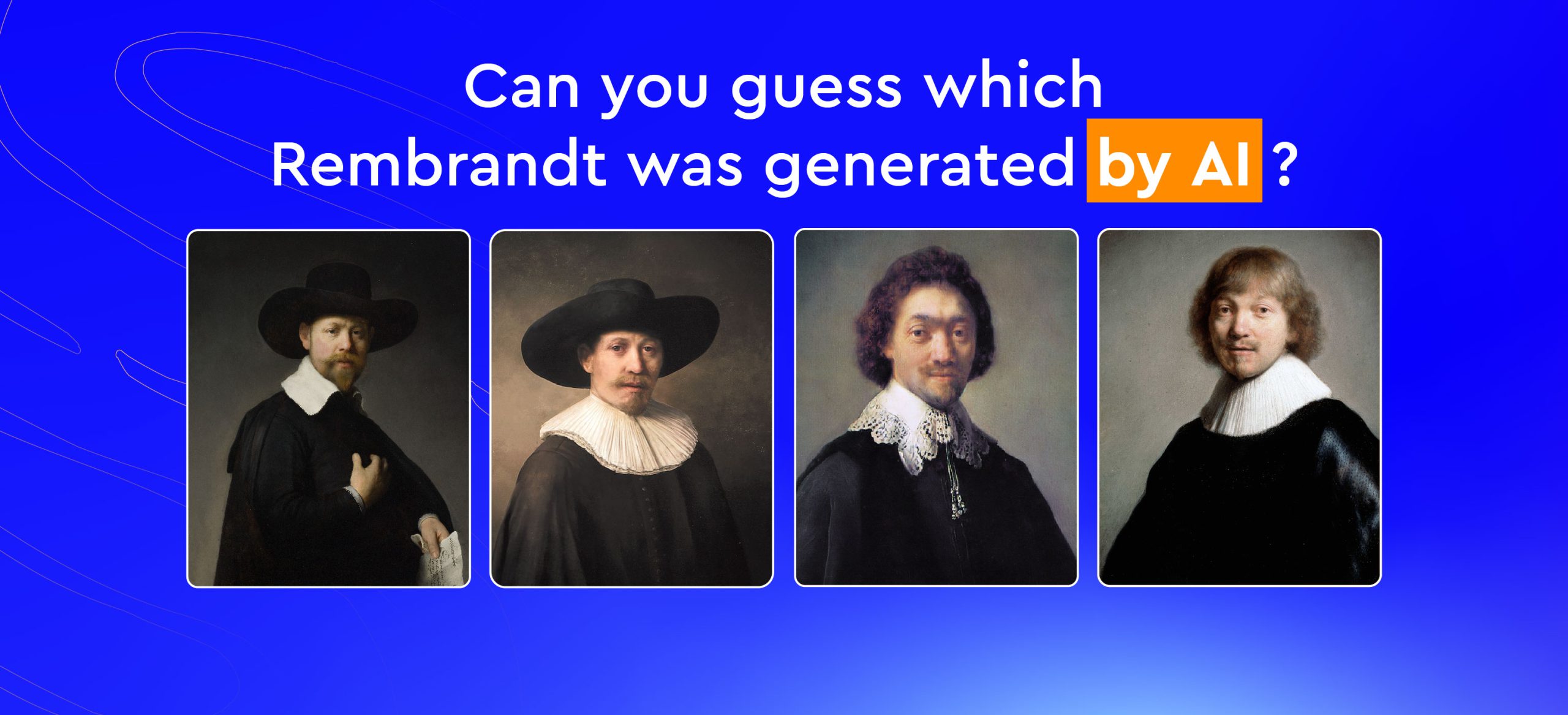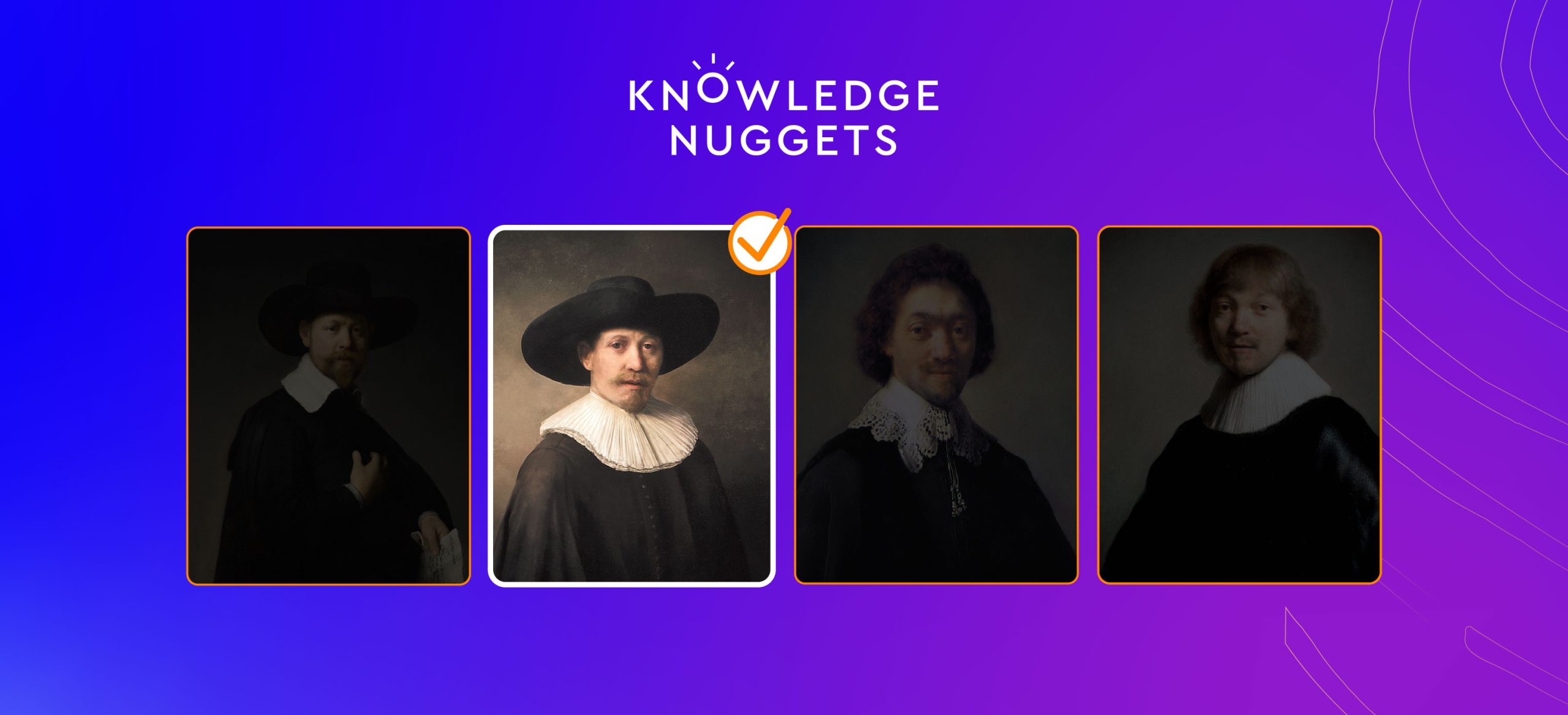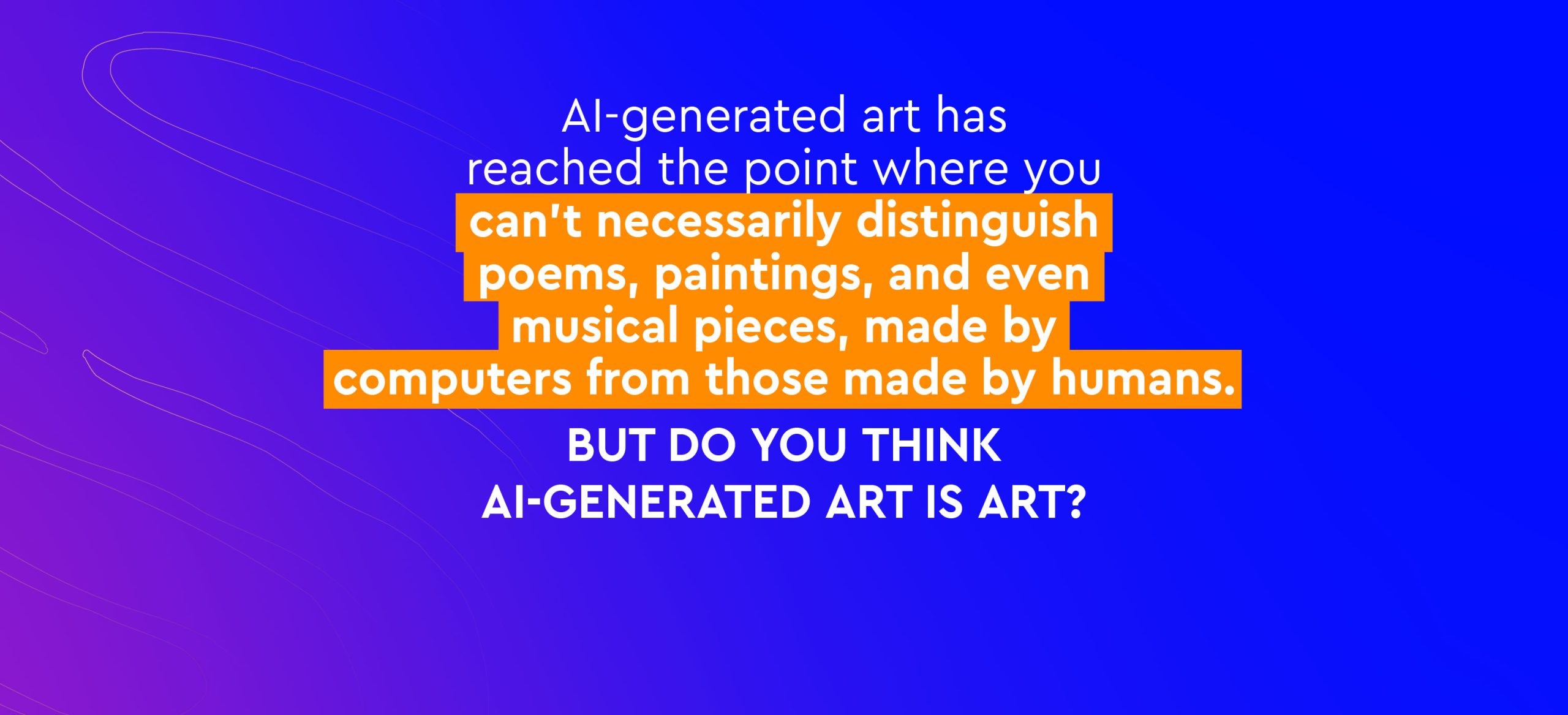

Can You Tell Rembrandt From AI?
Can You Tell Rembrandt From AI?
Today, algorithms produce images and texts that can compete with great art and literature. Or can they?
Mimicking the work of an old master once required a team of data scientists, engineers, and art historians. In a pioneering 2016 project, an AI model trained on over 168,000 painting fragments by Rembrandt generated a new image, which was then printed in 3D – replicating his style down to the brushstroke.
Today, it’s a different story.
With the explosive rise of generative AI tools like DALL·E, Midjourney and Stable Diffusion, anyone can now create images in the style of Rembrandt, Van Gogh, or Monet using nothing more than a short text prompt. A sentence like “A surrealist cityscape painted like a Van Gogh night scene” instantly conjures up a unique, high quality image – no programming, data collection, or expertise required.
And it’s not just visuals. Large language models like Chat-GPT and Claude can now write convincing short stories, essays, and poetry in the voice of Shakespeare, Toni Morrison, or Haruki Murakami. You can ask for a fictional obituary by Borges, or a new fairy tale by the Brothers Grimm. Within seconds, you’ll have it.
But here’s the deeper question: is this new power a creative liberation – or something more disruptive?
For most of human history, the ability to translate imagination into story and image was exclusively ours. This capacity shaped civilizations. It helped us cooperate, create meaning, and build everything from religions to nation states. But if machines can now generate reality bending art and ideas at scale – faster, cheaper, and sometimes better – what happens to the role of the human creator? What would become of the human society?
Just take a look at this: a Rembrandt-style portrait of Harry Styles, generated in seconds by Midjourney. Is it art? Is it theft? Is it progress? That’s a question we should all be asking.

Group Activity
- Divide the group into several teams.
- Pick one of the questions from the list below and let each team discuss it and then present their thoughts to the group; Alternatively, assign each team with a different question, and when they present it to the group ask the remaining teams for their thoughts as well.
Questions
- AI-generated art has become so impressive that we can’t necessarily distinguish poems, paintings and even musical pieces made by computers from those made by humans. But do you think AI-generated art is art?
To delve deeper, give each team an article from the list below (you can assign all of the articles or choose between them). Ask each team to summarize the article’s main argument(s) and present it to the group. Things to note and address: where was the article published (a magazine? A news website? An academic journal?) Who is the author (a columnist? An academic?). Each team can also turn the article’s core argument into a slogan (“AI deletes the I”, “The solution is evolution”, etc.). Ask each team to present their thoughts on the question to the group.- To answer this question, we first need to answer the basic question: “What is art?”. It is a very complicated subject that has been debated for at least 2,500 years. Merriam-Webster defines art as “something that is created with imagination and skill and that is beautiful or that expresses important ideas or feelings”. Does AI generated art meet the criteria? For a more elaborate definition of art, see the Stanford Encyclopedia of Philosophy entry.
- Article 1: I Got an Artificial Intelligence to Write My Novel. Electric Literature, June 2021
- Article 2: Is AI art any good? Art Basel
- Article 3: AI is about to shake up music forever – but not in the way you think. BBC Science Focus, June 2021
- Let’s say that someday in the not-so-far future computers could write novels equally as good as our own authors. Would it matter to you if the novel you’d be reading was written by a human being or a computer program?
- What about a TV show or movie script written by an AI – would you consider watching it? Does it matter to you whether the content is created by a human or a computer?
- Will there be human artists in the age of AI? What could be different about being an artist in this age?
- In the 1810s in England, a group of workers known as Luddites rebelled against the introduction of industrial machinery as it threatened their jobs. With the advent of robotics and artificial intelligence, it is clear that many more jobs are now threatened by an automated workforce. Should we halt or regulate the development of these technologies to save those jobs? Or should we trust the economy to produce other jobs?
To delve deeper, give each team an article from the list below (you can assign all of the articles or choose between them). Ask each team to summarize the article’s main argument(s) and present it to the group. Things to note and address: where was the article published (a magazine? A news website? An academic journal?) Who is the author (a columnist? An academic?). Each team can also turn the article’s core argument into a slogan (“AI deletes the I”, “The solution is evolution”, etc.). Ask each team to present their thoughts on the question to the group.- Article 1: Don’t fear AI. It will lead to long-term job growth. World Economic Forum, October 2020
- Article 2: Silicon Valley Is Using Our Own Intelligence to Make Us Obsolete. Medium, October 2020
- Article 3: If We Don’t Regulate Automation, It Could Decimate the U.S. Economy. Futurism, April 2017






